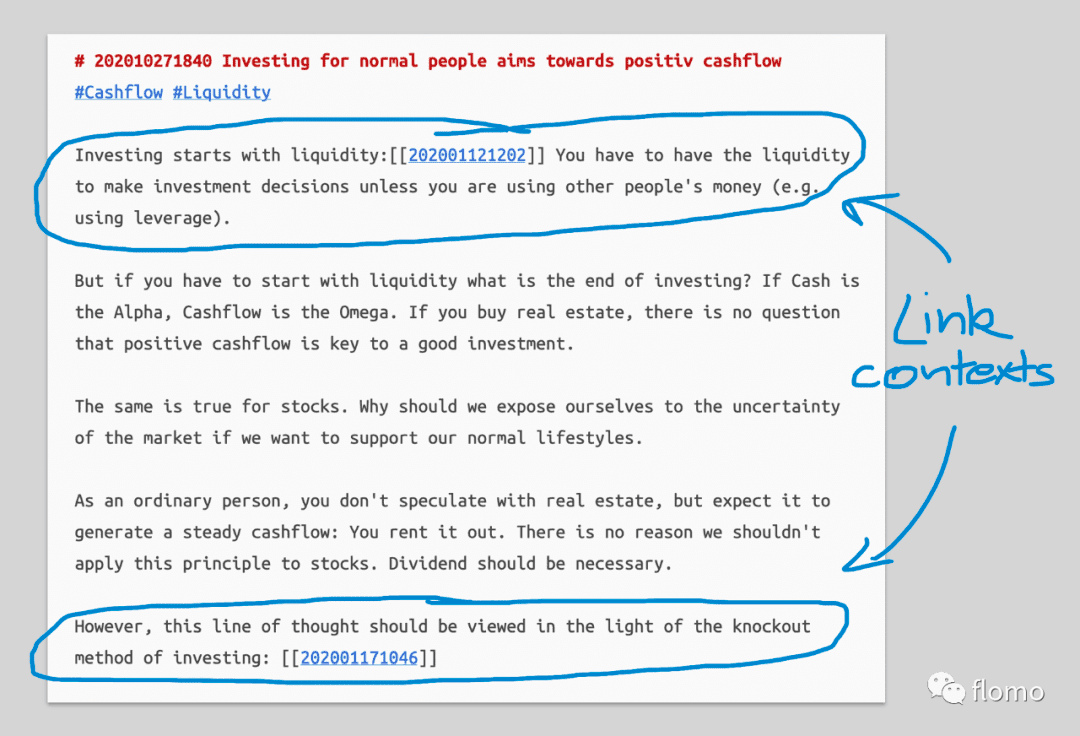🌿Why Does Knowledge Need to be Connected
The ways of connection

If you have ever played the SimCity, you will understand that the development of cities highly relies on the way of connections.
If there is no highway, then people will quit their job because of the shitty commute.
If there are all roads and no streets, people will complain about no any chatty space.
If there is no connection at all, the whole city will be stuck.
When you are heading off to a place in a hurry, you may consider driving on a highway or trying the subway. But when you want to leisurely wander around a city, the highway is definitely not a good choice.
The connections (traffic) in a city somehow define what the city is.
The connections in our brain
The knowledge stored in our brain is in the way of an organized library but an expanding city with skyscrapers, parks, and slum areas, all connected with roads and streets.
Searching for some knowledge points is like transporting on highway. You can’t reach any place other than the destination you are about to go to. But adding tags is more like the roads. Though it has both effectiveness and accuracy, you can hardly reach two places directly through roads.
There are similar ideas in an article on the Zettelkasten method: “search queries are deterministic means to get to Zettel notes: they produce the same results every time. Links are hand-picked references. The idea that makes you create a link is unique, and so is the resulting link. It’s much more personal and thus better suited to help you think.”[1]

Manually linking a card to another can enhance the connection between notes. You may annotate the link to remind you of the context. Therefore, these links will only be meaningful to you. It is your second brain, and that’s why it is here.
flomo supports not only searching and tags but also annotation, so now you can build some avenues among your MEMOs.
Case study
For example, I jotted down some MEMOs about knowledge management and put it under the tag of #KnowledgeManagement.
And some characteristics of the knowledge reminded me of a MEMO about seeing knowledge from the perspective of investment. I somehow felt there was a connection between them, and this investment MEMO is put under the tag of #Investment and #Technology.
After reviewing this MEMO, I recalled a conversation of compound interest with a friend Meng. There were some falsities about compound interest. Say, making 1% progress each day can bring a big difference. But not so many people can have such a speed of iteration. Well, the tag for this MEMO is #Friend/Meng #Investment/CompoundInterest.
So based on this connection, I talked about the falsities of compound interest in a course to prevent you from desires while taking notes. Some of our users felt it was interesting to see the accumulation of notes from a perspective of investment.

As abovementioned, these three MEMOs were put under different tags. So if using search or tag search, they can hardly appear together. But if I add a new tag to them, then there will be too many tags to search as well.
So the simplest way is to annotate them, just like building a street connecting them all. In this way, when I check one MEMO, I can easily think of the others. In the history of science, there is many new knowledge coming from such an intersection.
More streets are built, then more new knowledge can be created. Then we can see the value brought by compound interests of knowledge.

So how to use Annotate?
1. If you already had two MEMOs connected

After finishing these two steps, the MEMO you copy the link from will also add a backlink. So you can easily find them together whichever you choose. But whether it is useful depends on the change of your thinking.
If you want to annotate a new MEMO to an old one
If you want to annotate a new MEMO to an old one, you can choose the “Annotate” in the MEMO menu. Then a link is popping up on the input box. So you can add some thoughts and save it.

#References
[1] An introduction of Zettelkasten: https://zettelkasten.de/posts/search-alone-is-not-enough/
Last updated